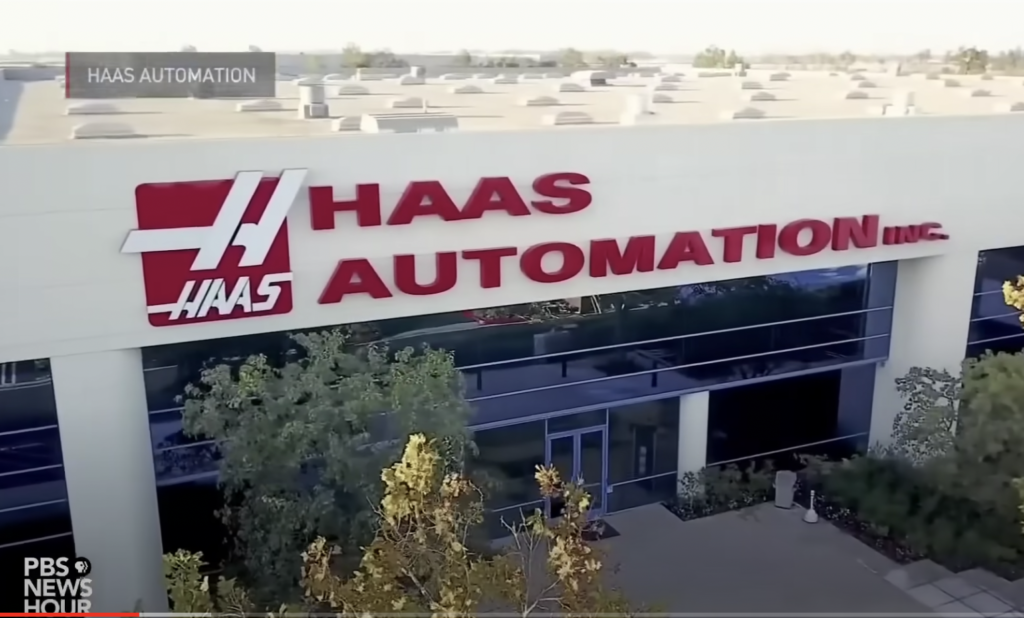Despite russia’s full-scale invasion of Ukraine, a high-tech American manufacturer Haas Automation, which is the largest machine tool builder in the western world, supplies its products to numerous russian military enterprises, including the sanctioned ones. The US company is doing business with the russian arms industry through its official distributor in russia and belarus Abamet Management LTD., told PBS News Hour.
The list of Haas’ clients includes RATEP, a russian weapons manufacturer that is part of the Almaz-Antey holding. It has been subject to US sanctions since 2014, when russia unleashed the war against Ukraine. The firm RATEP produces guidance systems for anti-aircraft weapons used by the russian military. Haas supplies it with sophisticated computer numerical control machines, or CNC.
«Those tools are very accurate, because the military industry needs very high accuracy and high precision in the production of different parts. It can be the parts for the ships, the parts for the aircraft, the different equipment and parts for missile systems, or even radio electronic equipment», said Denys Hutyk, an expert consultant with the Economic Security Council of Ukraine, or ESCU.
Haas also cooperates with such sanctioned russian firms as the Vektor Research Institute in St. Petersburg and the Scientific Research Institute of Electrical Carbon Products in the Moscow region. The first one helps manufacture satellites likely to track ships, aircraft, and ground vehicles during russia’s invasion of Ukraine, while the second one makes satellites and electronics.
Simultaneously, while working for russia’s war machine, Haas cooperates with the US military industry, supplying it with lathes and mills.
Haas vice president Peter Zierhut denied the company was still doing business in russia, but the custom databases show the opposite. Last year, from March 4 to October, Haas shipped at least 18 batches of equipment worth $2.8 million to russia.
Moreover, Haas continues to help maintain the equipment already sold to russian defense firms with spare parts and software updates.
Hutyk adds, “Legal experts believe that the company is aware or should have been aware of its equipment being used by russian military plants».
Agiya Zahrebelska, the head of the sanctions department on the National Agency on Corruption Prevention, echoes his statement, saying: «We are sure that they can check what country, what entities will be end user. And if these companies cannot control, I think that they have not a right to supply these products and to produce these products, because these products can kill people».
She also emphasizes that the whole russian military industry is dependent on Western machines. Germany’s Siemens and Japan’s DMG Mori also keep supplying their products to russia, thus helping russia’s arms industry to function.
Now the big question is whether the US government will step in to investigate one of its leading suppliers of manufacturing technology.
ESCU hopes a penalty would serve as a warning to others who continue doing business with Russia’s arms industry.

